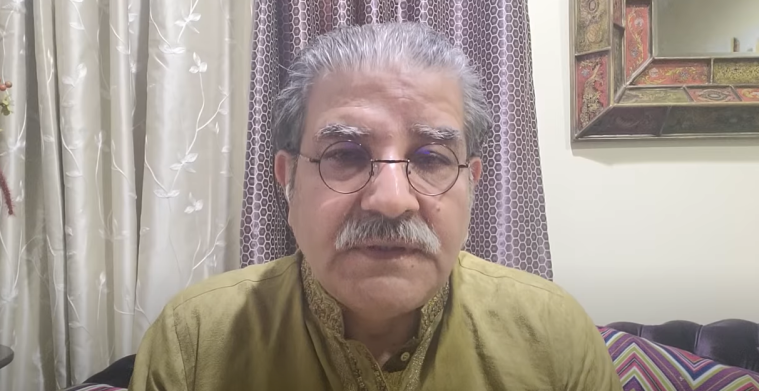New York, May 9, 2022 – Pakistan authorities must immediately drop their inquiry into journalist Sami Abraham and cease subjecting members of the press to legal harassment in retaliation for their work, the Committee to Protect Journalists said Monday.
On May 6, Pakistan’s Federal Investigation Agency opened an inquiry into Abraham, an anchor with the privately owned broadcaster BOL News and host of a current affairs YouTube channel with about 500,000 subscribers, according to news reports and a press release by the FIA.
The office of Ambreen Jan, director-general of the Ministry of Information and Broadcasting’s external publicity wing, told CPJ via email that Abraham appeared to violate Article 19 of the Pakistan constitution, which restricts freedom of speech on the basis of the ”integrity, security or defense of Pakistan,” in a video published on May 2.
In that video, Abraham discussed an alleged foreign conspiracy to oust former Prime Minister Imran Khan, who was removed from power in a no-confidence vote on April 10.
“Amid a political transition in Pakistan, the country’s new government has a unique opportunity to demonstrate its respect for press freedom, which is undermined when journalists face legal harassment in retaliation for their work,” said Steven Butler, CPJ’s Asia program coordinator, in Washington, D.C. “Authorities must drop their inquiry into Sami Abraham, allow him to report freely, and cease harassing journalists under the Prevention of Electronic Crimes Act.”
The FIA press release said authorities are conducting the inquiry under Section 20 of the 2016 Prevention of Electronic Crimes Act, which criminalizes transmitting information that harms a person’s dignity. Authorities accused Abraham of “spreading fake news regarding state institutions” and attempting to “incite armed forces personnel to mutiny,” according to those sources.
In a notice sent to Abraham, the FIA ordered him to appear at the agency’s Cybercrime Reporting Center in Islamabad on May 13. The agency’s press release stated that since Abraham was abroad at the time, a red notice would be issued against him through Interpol.
Abraham tweeted that he had discussed the inquiry with his lawyer, and he planned to take necessary legal action upon his planned return to the country on May 14. Abraham did not immediately respond to CPJ’s calls and messages requesting comment; on May 8 he published a video denied any criminal wrongdoing.
If charged and convicted under Section 20, Abraham could face up to three years in prison and a fine of 1 million rupees (US$5,328). CPJ has repeatedly documented how the Prevention of Electronic Crimes Act has been used to detain, investigate, and harass journalists in retaliation for their work.
The FIA stated in its press release that Abraham will have the opportunity to defend himself; if the inquiry determines that Abraham committed an offense, authorities can register a first information report, which opens an investigation and enables authorities to detain him, according to the press release.
On April 11, Pakistan’s parliament elected Shehbaz Sharif, leader of the Pakistan Muslim League-Nawaz party, as the country’s new prime minister. On April 19, the newly appointed Minister of Information and Broadcasting Marriyum Aurangzeb announced that the government would review the Prevention of Electronic Crimes Act, particularly the sections in which the right to freedom of expression was “misconstrued,” according to Dawn.
On Monday, May 9, the Pakistan Electronic Media Regulatory Authority issued directives warning private electronic media companies not to cast “aspersions against state institutions,” including the army and judiciary.
In its email to CPJ, Jan’s office stated that the government of Pakistan was “firmly committed to support, protect and promote free, independent and responsible media.”
CPJ emailed the Federal Investigation Agency for comment, but did not immediately receive any reply.
